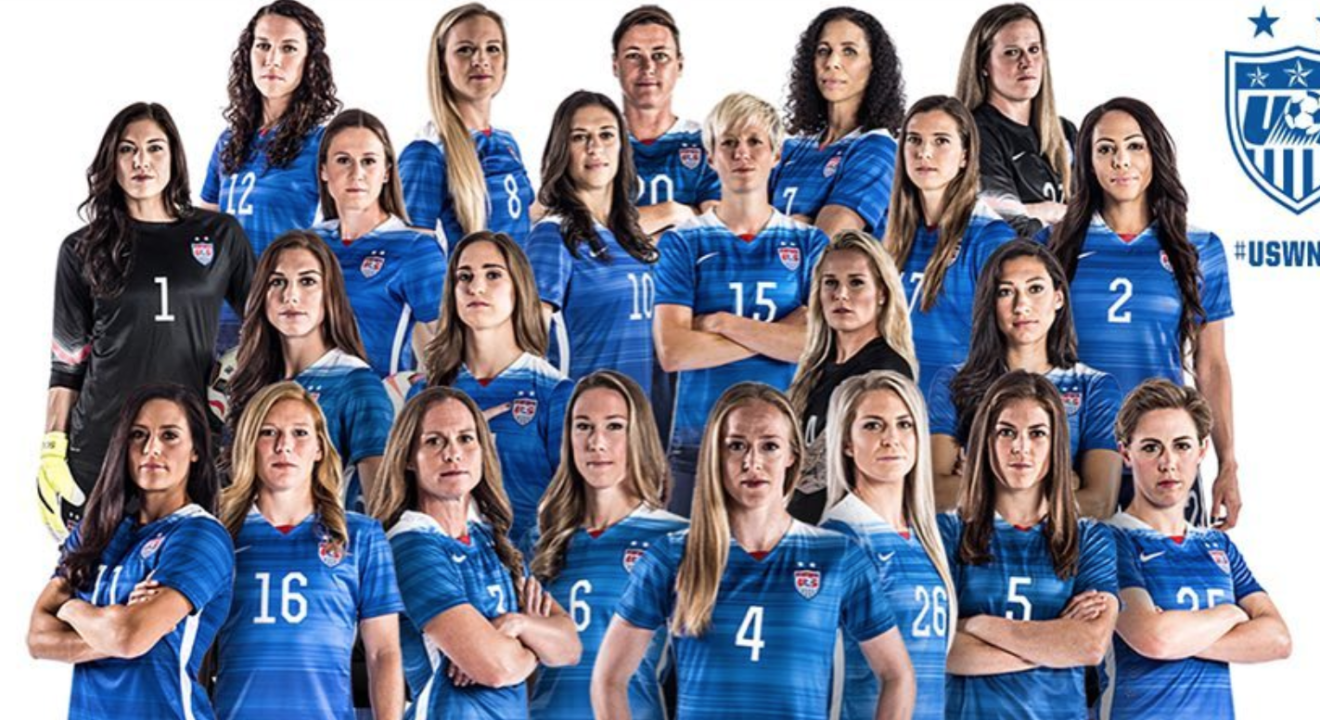Inspiration June 20, 2018
Maybe America will start paying attention to its female team.


The 2018 FIFA World Cup in Russia is finally here. To the chagrin of many U.S. soccer fans, the United States men’s team is not part of this year’s tournament. The United States sealed their fate after an unfortunate loss to Trinidad and Tobago in the first round of qualifiers for the world cup.
Although it’s upsetting that we won’t be seeing the men’s team in the tournament, it’s a reminder that the U.S. men’s soccer team isn’t such a big shot on the world stage. It’s also a reminder that while the U.S. men’s team didn’t qualify for the tournament, the U.S. women’s team has never let us down, and doesn’t look like it will any time soon (knock on wood).
The U.S. women’s soccer team runs the women’s soccer world – quite literally. In the 27 years that FIFA has held a Women’s World Cup, the United States has won first place four out of the seven tournaments. If that’s not enough, the United States has never gotten less than third place in the tournament, usually vying for first or second place.
On the other hand, the men’s national team has only made it into the top ten once, where it ranked #8. Otherwise, the men’s team has an average ranking of 20th and is currently ranked number 24.
There are a couple of theories as to why the U.S. women’s team blows everyone else out of the water. The main one has to do with Title IX.
Title IX was a piece of legislation passed in 1972 that prohibited any federally funded educational program to discriminate based on sex. This law revolutionized how and who could play sports in the United States. It is also one of the biggest reasons the U.S. women’s soccer team has been so successful.
According to NBC News, after Title IX passed, federally funded educational institutions were required to offer sports options for girls as well as boys. Soccer is relatively inexpensive when compared to other sports. As such, it became a popular option for girls sports programs.
Since then, other countries haven’t really been able to compete with the United States. Based on a 2014 survey by FIFA, female soccer players in the United States and Canada make up 47% of all female players around the world.
If that isn’t enough, the study also shows that the United States and Canada beat almost all other countries in female participation in soccer. This means that the United States and Canada have more women on executive committees and as coaches and referees. Unsurprisingly, the data also shows that there is a correlation between the number of women in soccer and the ranking that the country has on a world stage.
It’s pretty unanimous that the U.S. women’s team blows the men’s team out of the park. So, why don’t people care?
Well, while women’s soccer has been growing in popularity, it still doesn’t come close to beating men’s soccer in terms of viewership. And while it may seem like the U.S. is doing great in supporting its female athletes, there is still a long way to go towards equality between athletes. Female athletes across all sports are notoriously underpaid when compared to their male counterparts.
This is changing too, though. The U.S. women’s national soccer team filed a wage discrimination complaint in 2016, and last year they were able to close (a bit of) the gap between their salaries and those of their male counterparts.
Viewership of women’s soccer won’t change overnight. Hopefully, the U.S. men’s team being disqualified from the 2018 FIFA World Cup will mean that more Americans will tune-in to the 2019 Women’s World Cup in France. I know I will!